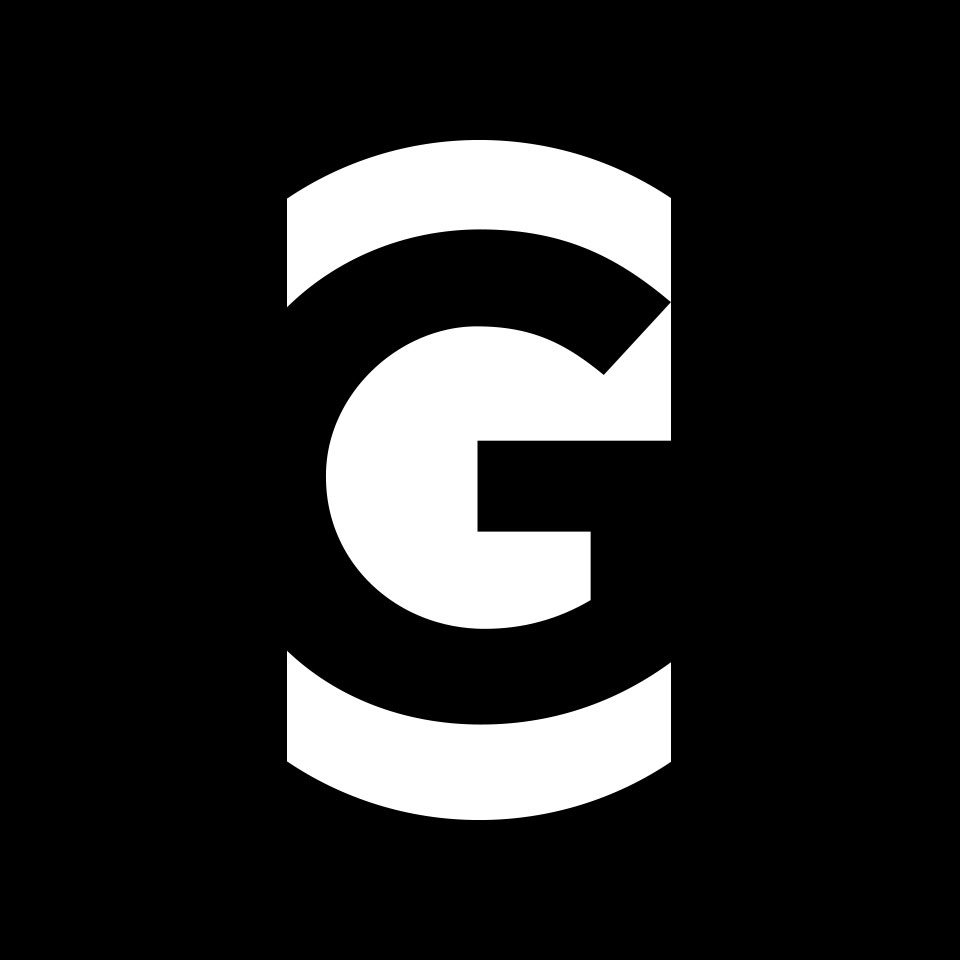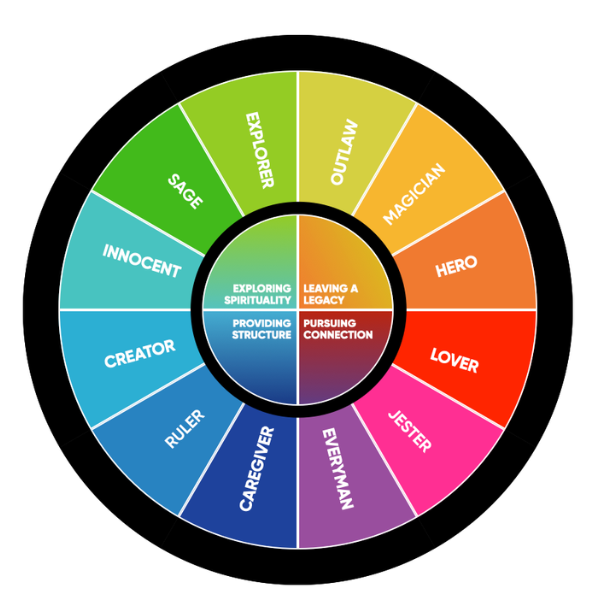Episode Summary:
It can be scary to change anything about a long-established, well-loved brand. But when done right, the rewards far outweigh the risks. Grafik’s recent rebrand of Demosphere, a Virginia-based company with a 30-year track record in sports team management technology, shows that evolved, modern brands resonate with both longtime customers and new ones. In this episode, Demosphere’s President discusses the creative process and the company’s new mantra: “The Team Behind Team Sports.”
Transcript:
**Sound Effects: whistle, sounds of children playing**
Clara:
Just about everyone can relate to the unbridled joy of playing sports as a kid. Maybe you are your high school soccer star..
**Sound Effect: crowd cheering**
Clara:
…or you dominated the basketball court.
**Sound Effect: shoes on basketball court, intro music fades up**
Clara:
You spent all your mornings in a lap pool, or you just couldn’t wait to get to your after school softball practice.
But as a kid you likely weren’t focused on all the work involved behind the scenes of the sport you were playing – all of the organizational, administrative needs any organized sports team needs to be successful. People need to know where to go, who they’re playing against, when and where their practices are being held, as well as what equipment to bring.
Demosphere has created integrated user friendly tools specifically for the way sports organizations are run. They take the busy work out of sports management…so that players, teachers, parents, and even amateur adults can kick-back and focus on what’s most important: having fun.
What else makes Demosphere so interesting? They’re a family-owned business with over 30 years of experience. And like any family-owned business, they’re a tight crew with a long history.
So how do you go about approaching the rebrand of a client who has such a long and storied history?
We had the pleasure of working with Demosphere on a brand refresh a year ago, and I had the chance to sit down with Kris Baker, Demosphere’s President, along with our creative directors George, Gregg, and our director of client services Esther, to talk about the work we were able to produce together for the team behind team sports. Take a listen and we hope that you enjoy.
**Transition Music**
Clara:
Kris, thanks so much again for being here with us today. We’re super excited about this.
**Music fades down**
Clara:
For our listeners out there, could you give us a quick overview of who you are and just a little bit more about the work you guys do over at Demosphere?
**Fade Down**
Kris:
Sure, yeah. My name is Kris Baker and I’m the President of Demosphere. I’ve been there about 12 years. Our team is really a really tight knit, collaborative group of people and we create and extend web applications that are geared towards sports organizations. So we do things like online registration of players and teams and game scheduling and team building. And we’re really excited about our new product that’s coming out which is geared more towards referees and game assignments and things like that.
Clara:
You guys have been around for over 30 years now. What initially prompted you guys to seek out a brand refresh?
Kris:
Demosphere has a pretty amazing story to tell; as you said, we’ve been around for almost 30 years now [and] we have a lot of history. Going back to our days of working with FIFA and the World Cup technology committee, I think over time, some of that messaging may get lost in the market. And so it was a really good opportunity for us to kind of take a step back, and make sure that we understood what our message was and how we wanted to present ourselves to the rest of the world, and then get some expertise on how to properly present that message to everybody else.
George:
I bet when you first started people were printing out rosters, signing up on sheets…
Kris:
Yeah, hand writing stuff, printing stuff — I think one of the first solutions we ever built was a phone tree calling system where you would call in and you would like, leave the score on a voicemail and then somebody would go back and like transcribe everything and, you know, type it up and disseminate it for the rest of the world. So, obviously, things have changed a lot since then. And especially with, everybody [being] like, mobile first, that’s the way everything has gone. We all have a phone, we don’t always sit stationary at our computer. So this information needs to be accessible on the go, which means more development and really pushing the envelope there.
Gregg:
So for the people listening in, what do you what do you think is your differentiator?
Kris:
I mean, I think a lot of it is the fact that we have the experience and expertise in this space and a true passion for what we’re doing. When you’re building a brand, it’s not about… power, it’s not about money. It’s not about how you’re recognizing in the marketplace, but it’s really about building trust. And that’s what we’re going for is that we want people to trust who we are, and that we’re doing things for the right reasons and that it’s not about the money.
I truly believe that. And I always say that if we build solutions that people want, like, genuinely want, that’s the authenticity part of it. Then the money will come, because they’ll want to use our services and stay with us long term. So, that’s, that’s the key. I think that unfortunately, I think, a lot of businesses out there…miss that point. And it’s the most important thing.
**Transition Music**
Kris:
Our strengths, our experience and our familial aspects of our community, our greater community — I think sometimes that can also be perceived as a detriment because people do think that, “Oh, you’re a family-owned business.” But when we say family, we don’t just mean the Baker family, you know, we mean, our extended family — all of our employees, who we care very deeply about and our customers, many of whom we’ve been working with for 15 years. So it’s a whole…that family aspect is a whole community and not just the little Baker family.
George:
It also speaks to the importance of understanding your brand so that the core values of what you do remain.
Kris:
Yeah, and that’s what was great about going through the process with you guys is that you helped us kind of focus on that. We knew that messaging was there, that internal messaging has always been there since the beginning in 1990, but sitting down with you and your team and going through the exercises of just understanding our brand and who we are, it was a really fun process.
Every time we have a company meeting we always pull up our mission statement and our brand identity and the pillars and, you know, just reminding everybody that this is why we do what we do. And you look around the room and you see a lot of head nods, everyone gets it. And that way, when, you know, I hear my staff, whether it’s our support team or our sales executives when they’re out there in the market, they’re using those words to describe our company and it’s a really good feeling to know that it’s consistent across the organization.
It was a really good process. And then to even like, tack on to that point, it’s not just about what we think or about what you think based on what we’ve told you, but what do our clients think? What do our prospective clients think? How have we been perceived in the market?
And one of the really good success stories that I can share is…so every year we attend the United Soccer Coaches Convention, which is in January of every year. So we chose that time to really roll out our brand, you know, our new brand, our new branding, new website, and just overall marketing, messaging and so forth and it was really well received. We got a lot of positive compliments, not only from clients, but also prospective clients. But most importantly from people who’ve known us for many, many, years and do know who we are at the core.
And, you know, whether or not it’s 100% corollary or not is questionable, but we walked away from the convention this year with more than double the amount of leads that we got last year. So that was really, really exciting, quite impressive growth. So we’re happy about that.
**Transition Music**
George:
Was there ever any hesitation to the questions we asked?
Kris:
Well, I guess I wasn’t expecting, when we can came in with the management team to kind of have those planned out exercises. And there was one that you guys did, which was really fun and that was the, I forget exactly what it was called, but it was something about like, five years from now, if there was like a headline about Demosphere, what would it be? And just having each one of our management team members come up with, like, what they’re thought of as what the future would be, that was really fun and interesting. And, you know, caught me a little off guard. I was like, “Wow, I don’t know, I don’t know,” but we had some similar concepts to where we thought the company was headed.
Esther:
So you mentioned that the results of the brand has definitely changed the way that you and your team approach a lot of the decisions that Demosphere makes, have you seen it actually make a difference in the company culture as well?
Kris:
I think it has reassured something that was already there. There’s one thing to kind of have this underlying feeling of how things are and how your, you know, everybody feels as being part of the company but having the like, set in stone, pillars of your brand and your tagline and your messaging on point. It’s makes a huge—it’s like the glue that holds everything together so just strengthening what was already there.
It has absolutely impacted the way that our employees interact with the outside world. They’re not afraid to say the things about like, we’re not afraid to say we’re a family owned business. We’re not afraid to say that we’re privately held and that we don’t have investment dollars out. We’re not afraid to say those things because they make us who we are, and we’re proud of it.
It’s fun to watch them like, interact with people when we’re doing trade shows and stuff and just being like, “Yep…that’s exactly on point.”
**Music fade in**
Kris:
If you haven’t done a brand refresh, it’s definitely worth the time and energy and money. It’s — it was a lot of fun. And I think the rewards will continue to pay off over time.
So thank you guys, it’s been fun…
Group:
Thank you!
Clara:
Demosphere is an Information Technology company based in Northern Virginia, catering to the technology needs of sports organizations around the country. For more information, go to www.demosphere.com, spelled d-e-m-o-s-p-h-e-r-e.
Today’s roundtable discussion featured Kris Baker, President of Demosphere, Grafik’s Creative Directors George Nicholas, and Gregg Glaviano, along with Grafik’s Director of Client Services, Esther Nardone.
I’m Clara Shannon, and you’re listening to Studio G.
EPISODE NOTES
Host: Clara Shannon, Marketing Associate, Grafik
Guests: Kris Baker, President, Demosphere
George Nicholas, Chief Creative Director, Grafik
Gregg Glaviano, Principal Creative Director, Grafik
Esther Nardone, Director of Client Services, Grafik






